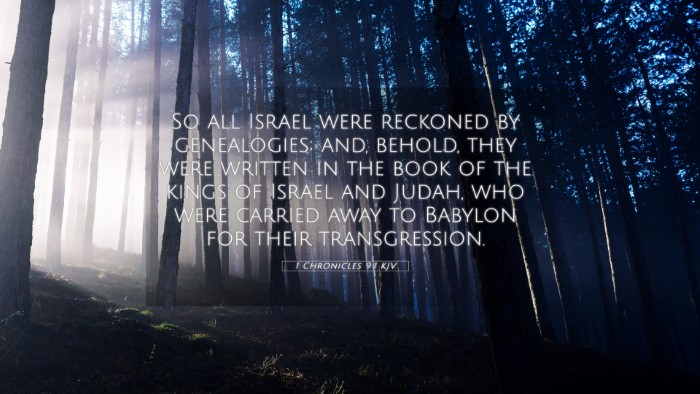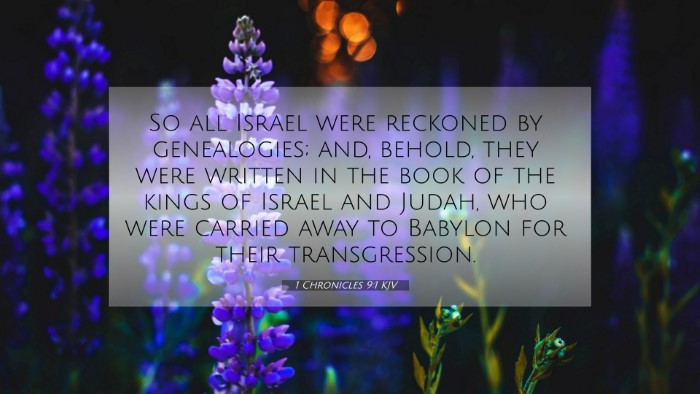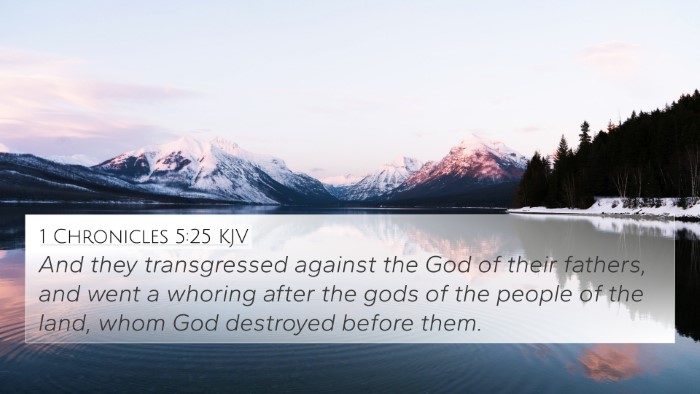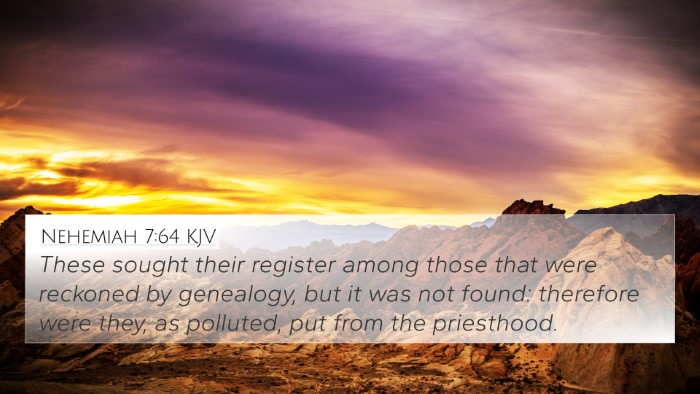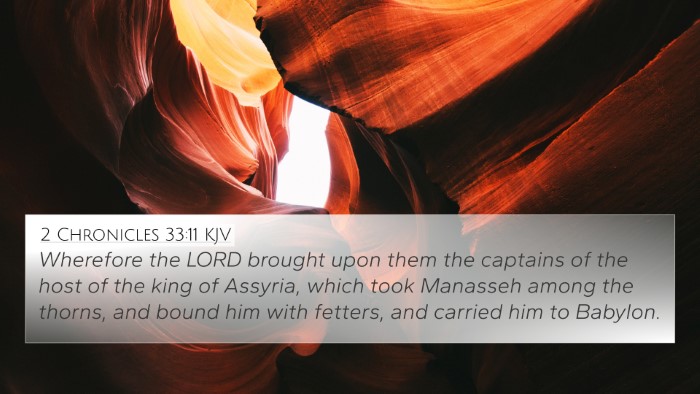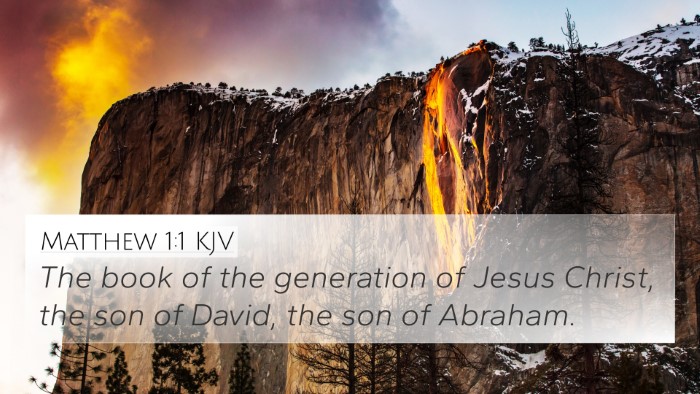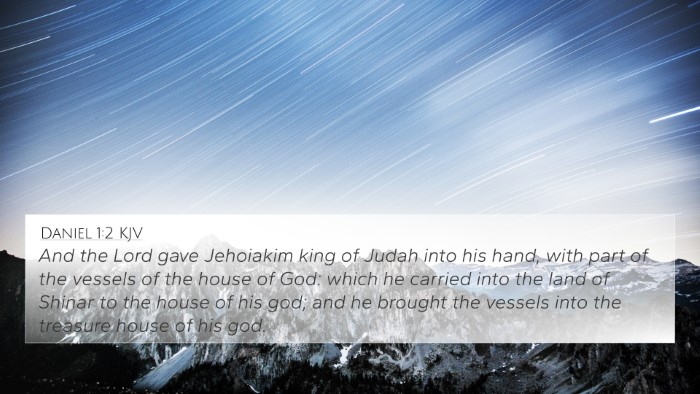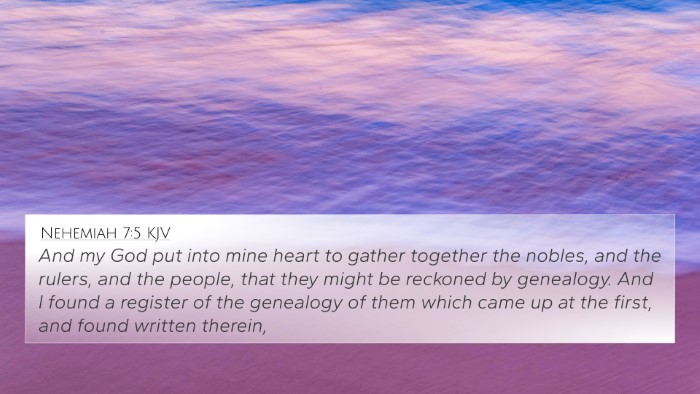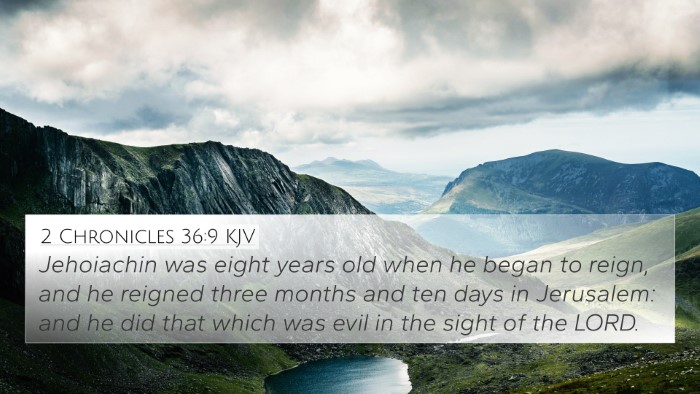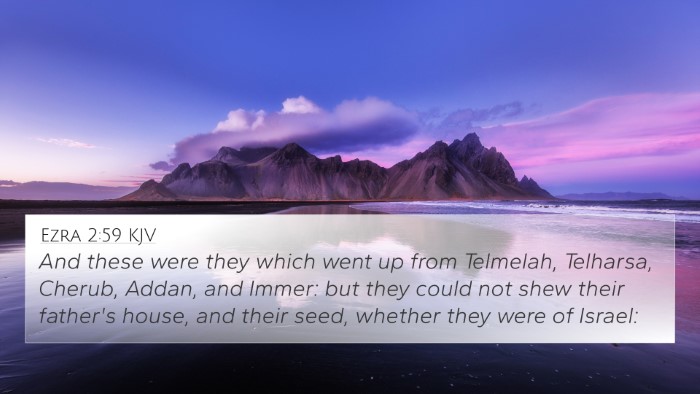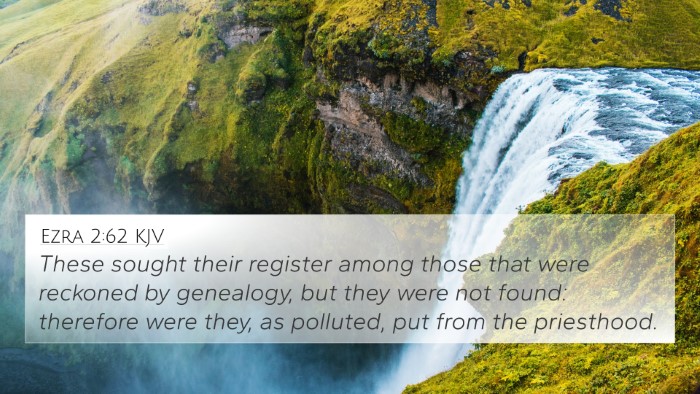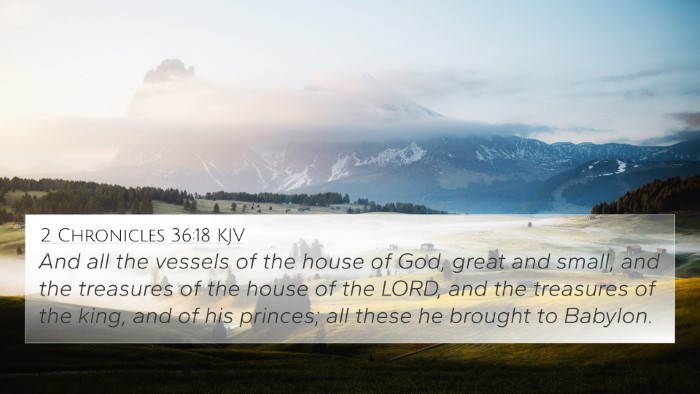Understanding 1 Chronicles 9:1
Verse Reference: 1 Chronicles 9:1
This verse serves as a foundational statement concerning the genealogy of the Israelites after the Babylonian exile, emphasizing the importance of the ancestral records and the roles of the Levites and priests within the community.
Summary of 1 Chronicles 9:1
The opening verse meticulously presents the names and lineage of the Israelites who returned to Jerusalem, highlighting those who served within the temple and underscoring the significance of maintaining accurate genealogical records.
Commentary Insights
- Matthew Henry: Henry emphasizes the importance of genealogies in establishing identity, particularly for the Levites and priests, who held crucial roles in worship and community leadership. He notes that these records serve to connect the present community with their forebears and their covenant relationship with God.
- Albert Barnes: Barnes highlights that this chapter presents a registry of the people who returned from Babylonian captivity, serving to remind the community of God's faithfulness in restoring them. He expounds on the necessity of these records for maintaining order in worship and societal structure.
- Adam Clarke: Clarke points out that the mention of families and their roles in the post-exilic period is indicative of God's providence. He stresses the significance of the Levitical priesthood and hints at the importance of divine selection in choosing leadership within the returning exiles.
Cross-References to 1 Chronicles 9:1
This verse resonates with several others throughout Scripture, emphasizing the continuity of God's people across generations:
- Ezra 2:1-2 - Details the names of those who returned from exile, echoing the importance of recorded lineage.
- Nehemiah 7:6-7 - Lists leaders who returned to Jerusalem, reinforcing themes of restoration and continuity from exile.
- 1 Chronicles 5:29-31 - Mentions the genealogies that serve as a basis for establishing priestly roles and obligations.
- Jeremiah 33:17-18 - Prophecies concerning the Levitical priests, affirming God's promise regarding their continued service.
- Luke 3:23-38 - The genealogy of Jesus Christ connects the New Testament's narrative back to the Jewish ancestors, fulfilling covenant promises.
- Romans 11:1 - Discusses the concept of a remnant of Israel, echoing the significance of those who returned post-exile.
- Hebrews 7:14 - Touches upon the Levitical priesthood in relation to Christ's eternal priesthood, indicating the importance of this lineage.
- Acts 2:39 - Speaks of the promise being for the children, emphasizing the generational aspect of God's covenant.
- Revelation 21:12 - Describes the names of the twelve tribes of Israel, tying the unity of God’s people back to their ancestral roots.
- Psalms 87:5-6 - Celebrates the idea that God recognizes those who are part of His community, affirming their lineage and identity in Him.
Thematic Connections
1 Chronicles 9:1 establishes a theme of God’s faithfulness through the history of His people. The inter-Biblical dialogue between this verse and others throughout the Bible enhances understanding of God’s continued relationship with His people through their lineage, worship, and restoration.
- Genealogy: The narrative highlights the importance of tracing family lines, which can be explored through resources such as a Bible concordance or cross-reference guide.
- Restoration: Post-exilic themes in 1 Chronicles can be compared with themes in Nehemiah, revealing God's restorative nature.
- Worship: The roles of the Levites and priests bring attention to the sacrificial system and its significance, paralleling New Testament teachings on redemption.
Conclusion
The exploration of 1 Chronicles 9:1 and its connections with various Biblical texts demonstrates the rich tapestry of God's relationship with His people. By utilizing various tools for Bible cross-referencing and understanding the historical context, one can derive deep insights into the significance of lineage and worship within God's covenant community.

